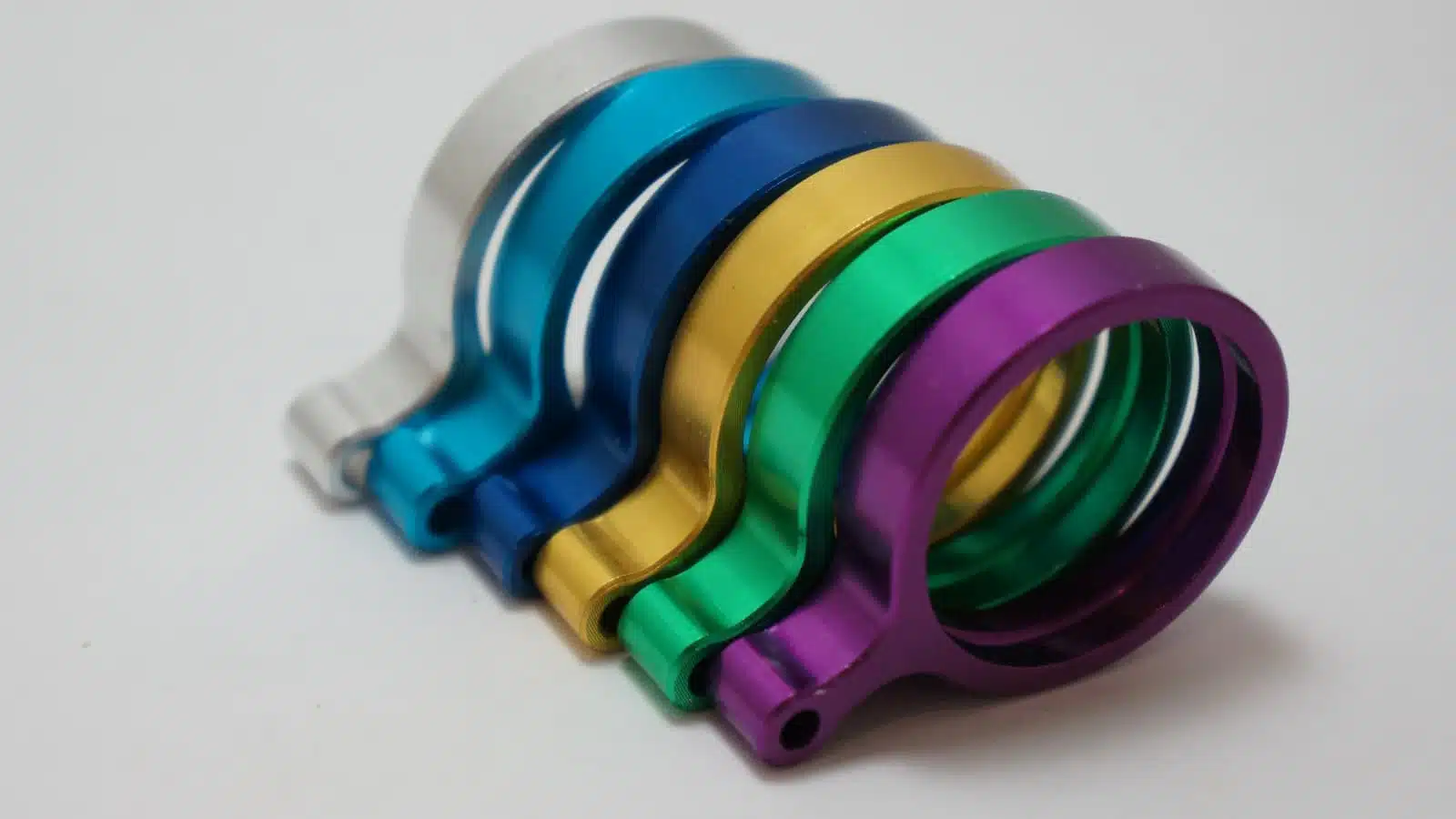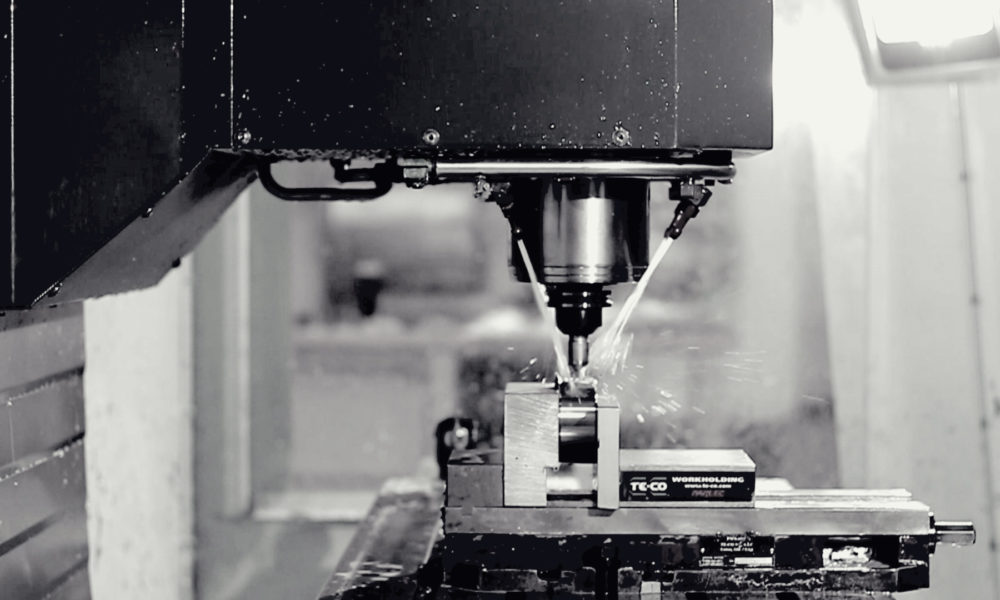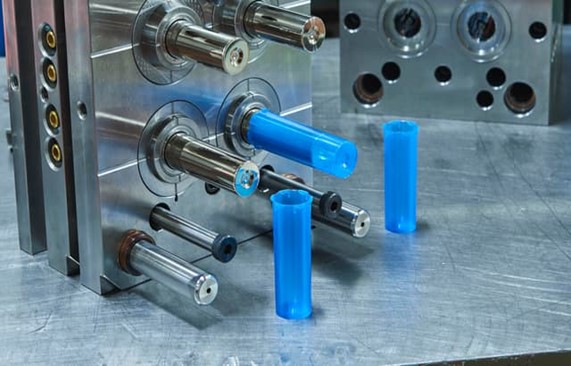The medical industry has had increased demands for high-quality and high-precision products over the past few years. These products must be produced within a short period and meet strict industry standards. Product managers and designers now use medical CNC machining to meet these demands.
The versatility of CNC machining for medical industry and its compatibility with various processes and materials has made it useful for the medical manufacturing industry. Medical products can be manufactured much faster and cost-effectively.
This article discusses why medical CNC machining is ideal for your project. We will also dive deeper into the various materials for medical machining to help you choose the right one for your products. Read on to learn different tips to maximize the production of CNC machining medical devices.
Why Choose CNC Machining for Medical Industry?
CNC machining is a fundamentally faster and more precise process than conventional processes. As a result, machined products can meet tight tolerance requirements and performance standards. Manufacturers make some medical supplies with plastic injection molding. CNC machining also helps create high-quality molds for repeatable and consistent injection.
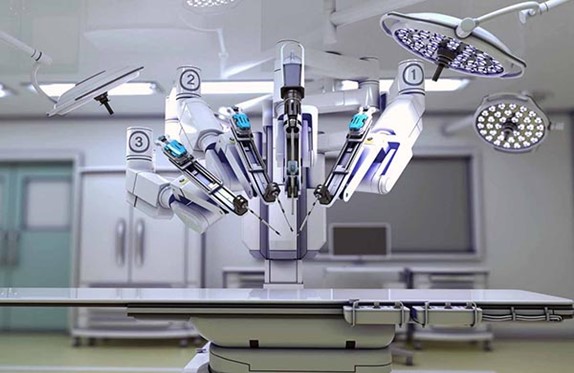
Here are key reasons why CNC machining is valuable for medical prototypes and parts:
Various Tooling Selection
CNC machining is a cost-effective and efficient method for producing highly accurate medical components, eliminating the need for specialized tooling. This process does not involve expensive tooling compared to other production methods, saving both time and money.
In contrast to dedicated mold tooling that can take up to four weeks, precision CNC machining offers faster turnaround times for small production runs or custom parts. In the medical industry, where quick and precise parts are frequently required in small quantities, CNC machining proves to be an ideal solution. It delivers accurate and high-quality results without the need for specialized tools.
No Minimum Order Volume
Unlike other manufacturing methods that require minimum order volumes, CNC machining does not, making it more suitable for smaller projects. CNC machining allows for the rapid generation of a cutting program from a digital CAD file.
This enables the high-precision production of one or more custom-machined medical parts with no minimum order requirement. CNC machining is, therefore, ideal for highly specialized medical devices, equipment, surgical products, prosthetics, and other products that frequently require one-off or single-use custom parts.
Material Flexibility
The use of portable CNC machines and the easy transfer of digital CAD files are made possible by digital machining. Although portable CNC machines have limited capacity, they can help to manufacture simple medical components. With a few exceptions, standard CNC machines can work with the most common materials used for medical and surgical tools, appliances, and parts. These materials include stainless steel, aluminum, titanium, and production-grade plastics like PEEK.
High Production Speed
Medical CNC machining allows for the quick production of medical components. Depending on their complexity, you can produce finished parts within a few hours. In medical emergencies, where the types of parts or components required are difficult to predict, CNC production machining can quickly deliver high-quality parts in various quantities.
Machined Parts with Tight Tolerances
Many sophisticated medical devices require very tight tolerances, and CNC machining can easily achieve these service tolerances. This reduces the need for post-processing and minimizes the risk of errors. It not only saves time and money but also ensures that medical components are fit for their intended purpose.
Even small deviations in specifications can have harmful consequences in the healthcare sector. The precision and accuracy of medical CNC machining greatly reduce this risk and enable the production of high-quality parts.
Flexible Design Complexity
One key advantage of CNC machining is the ability to transfer digital programs quickly and easily between medical specialists, product designers, and manufacturing professionals. This ability greatly enhances its effectiveness in creating high-quality and specialized CNC machined medical equipment, regardless of where they are needed. This benefit is particularly valuable in situations where time is a critical factor. It allows for the rapid creation and delivery of essential medical components.
Materials for Medical CNC Machining
Medical components are often designed with tolerances, malleability, and tension requirements in mind. Designers also consider disposal and sterilization requirements. Therefore, choosing only the right CNC machining materials that meet functional and quality demands is crucial.
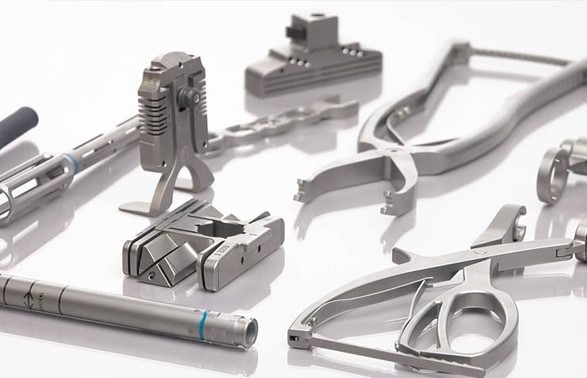
Most medical devices are created from stainless steel, with titanium and aluminum becoming popular. Plastic polymers and some composites are also ideal in some cases. The tables below summarize the applications of the standard medical machining materials:
Metals
| Metals | Why Use It and Applications |
| Aluminum | Aluminum is a strong and lightweight material with good corrosion-resistant properties. It can also be easily anodized to improve its mechanical properties and corrosion resistance. It may not be ideal for devices in direct contact with the human body. However, it is an excellent choice for support equipment like wheelchairs, orthopedic supports, IV stands, and more. |
| Stainless Steel | It is ideal for several applications because of its biocompatibility, highly durable, strong, and corrosion resistance. It can also be polished to have a fine surface for easy cleaning. Applications include orthopedics like hip joint replacements. It is also a good choice for surgical devices like forceps, tweezers, hemostats, etc. |
| Copper | Manufacturers use this metal because of its excellent antibacterial and antiviral properties. Therefore, it is ideal for constantly touched surfaces like monitor switches and buttons. Some manufacturers also use it in some dental implants. |
| Titanium | This metal is a good substitute for stainless steel because of its high strength, durability, and biocompatibility. So, it is an excellent choice for making bone replacements, prosthetics, and skeletal supports. |
| Magnesium | Magnesium exhibits an excellent strength-to-weight ratio and is also a biosafe compound. Its tendency to safely biodegrade is exploited in bone graft replacements and heart stents. |
Plastics
| Plastics | Why Use It and Applications |
| Delrin | Delrin is a high-strength, rigid, and dimensionally stable thermoplastic material used in medical applications. It is also chemically resistant and has a low coefficient of friction, making it ideal for use in CNC machining medical devices that need to be durable and precise. Examples are orthopedic implants, forceps, scalpels, inhalers, and simple medical equipment components. |
| Acrylic | This plastic material is famous for its resistance to impact and optical clarity. It is used for making many machined medical parts such as contact lenses, orthopedic implants, dental prosthetics, microscopes & lasers, and protective shields. |
| Polycarbonate (PC) | Polycarbonate is known in CNC machining for medical industry for its high strength, impact resistance, and optical clarity. Some of its applications include tubing and connectors for medical devices, protective goggles and shields, respiratory masks, surgical instrument handles, and housings for medical equipment. |
| PEEK | PEEK is an engineering thermoplastic widely recognized for its remarkable strength and exceptional high-performance properties. It is highly chemical resistant, making it ideal for use in medical parts exposed to harsh chemicals. Applications include temporary contact products, ventilator tubes, surgical clamps, X-ray machines, and prosthetics. |
| PTFE (Teflon) | It is a medical-grade thermoplastic known for its high heat resistance and good dimensional stability. It is a reliable choice for applications that require repeated steam sterilization and devices requiring high precision and reliability. Examples include catheters, implantable devices, prosthetics, wound dressings, etc. |
| Polypropylene (PP) | This plastic material exhibits high chemical resistance, making it useful for constantly sterilized devices. It also shows good dimensional stability in making precise components, including test tubes & pipettes, medical packaging components, inhalers & nebulizers, and disposable medical devices like syringes & IV sets. |
| UHMW PE | Ultra-high molecular weight polyethylene is widely acceptable in the medical sector because of its biocompatibility, high strength, and wear resistance. Examples of medical products produced with this plastic include orthopedic implants, proves & shavers, catheters, splints, trauma plates, etc. |
| Nylon | The use of this versatile engineering-grade thermoplastic in medical applications is due to its toughness, strength, and toughness. It is ideal for components like sutures, catheters, forceps, clamps, implants, and dental devices. |
Considerations When Choosing Materials for Medical CNC Machining
Selecting suitable materials for machining medical parts requires careful consideration of many factors. It also requires a deep understanding of the specific needs and requirements of the medical applications.
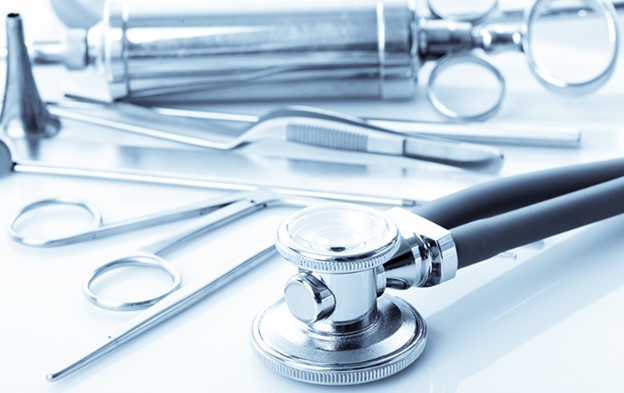
Below are essential factors to keep in mind:
If Long-Term Contact
Long-term contact CNC machined medical equipment are those semi-permanent or permanent implants on the body or inside the body. These devices include pacemakers, prosthetics, artificial heart valves, hearing aids, artificial joints, etc. Consequently, it is essential to use strong and durable materials for these applications. Biocompatibility is also a significant consideration in this situation.
Titanium and stainless steel are the metals of choice in this case because they are highly biocompatible and non-toxic to the body. Thus, they can remain in contact with tissues without problems. Plastic polymers like PE, PU, PET, and acrylic are also good choices for such applications.
If Chemical Resistance
Many medical products often require constant cleaning, sterilization, and re-using. Such products include surgical equipment, ventilator masks & tubes, diagnostic and testing equipment, etc. Therefore, materials used for these components must be resistant to chemicals used for cleaning and sterilization.
Stainless steel is known for its excellent chemical resistance, which can resist exposure to most acids, bases, and organic compounds. Likewise, titanium and aluminum exhibit good resistance to corrosion by certain chemicals. Thus, they are great choices for making such components. Plastic resins like PC and PEEK are also valuable in this case.
If Radiation Resistance
Magnetic resonance imaging, X-rays, and chemotherapy can all be sources of radioactive contamination in medical parts. The effects of radiation accumulate over a product’s lifetime. Therefore, it is essential to choose medical machining materials that will not degrade on exposure to radiation. This is particularly crucial for X-ray machines, equipment used in surgical operations, and other diagnostic tools.
Of the metal materials discussed earlier, titanium is the most radiation-resistant. This is because of its high density, making it less likely to absorb radiation. Manufacturers also choose resins like ABS, PU, and PEEK for these applications.
If Sterilization
The common types of sterilization in the medical industry are steam, chemical vapor, and radiation sterilization. These sterilization methods expose the surfaces of medical materials to degrading agents, including high temperatures, chemicals, and radiant energy. Therefore, choosing the right materials that can resist these agents is vital.
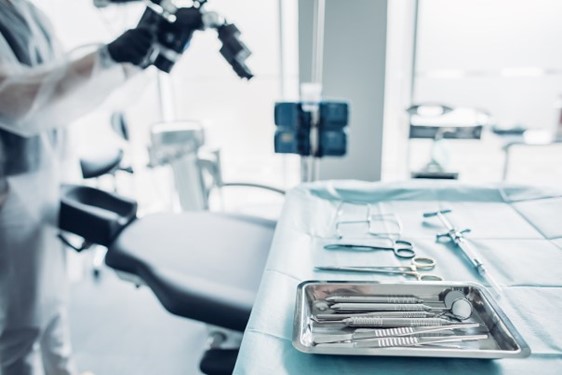
Stainless steel is popular because it is corrosion-resistant and can withstand high temperatures and repeated sterilization cycles. Titanium is also a commonly used material for its corrosion resistance and wear upon sterilization. Plastics like PEEK, PC, PU, and ABS are also excellent options.
If Drug Delivery
Drug dispensers delivering drug dosages must ensure aerosols and fine powders don’t stick to the surfaces of the material. This will affect the accuracy of the drug dosage, adversely affecting treatment outcomes. As a result, you must choose the correct material for tubes, vials, injectors, cans, and other drug delivery devices.
Stainless steel, aluminum, copper, and titanium have excellent static-dissipative properties, making them suitable materials for drug dispensers. Anti-static plastic polymers include polypropylene, ABS, PC, and acrylic.
If Artificial Joints
The choice of plastic for artificial joints will depend on the specific joint being replaced and the individual patient’s needs. Joint replacement materials for semi-permanent or permanent use must be strong, biocompatible, and wear-resistant.
The most commonly used metals for artificial joints are titanium, stainless steel, and cobalt-chromium alloys. They are excellent choices because of their high strength, biocompatibility, and corrosion & wear resistance. Some of the most commonly used plastic resins are UHMWPE, PEEK, and PTFE.
If Prosthetics
Prosthetic design ensures easy forming, strength, and ability to withstand high impact. This is important for artificial limbs and orthotics. The choice of material can depend on factors like the location of the prosthetic, its weight, and the level of durability needed.
Titanium is a popular choice because it is strong, biocompatible, lightweight, and corrosion-resistant. Stainless steel and aluminum are also excellent choices, with aluminum especially important for lightweight applications. Plastic resins for these applications include ABS+PC, PMMA, PEEK, glass-filled nylon, and High-Impact Polystyrene (HIPS).
Tips for Designing CNC Machined Medical Parts
While CNC machining is an excellent option for manufacturing a wide range of medical components, it can get complex. Therefore, it’s essential to put a few things in place to get the best result from medical CNC machining.
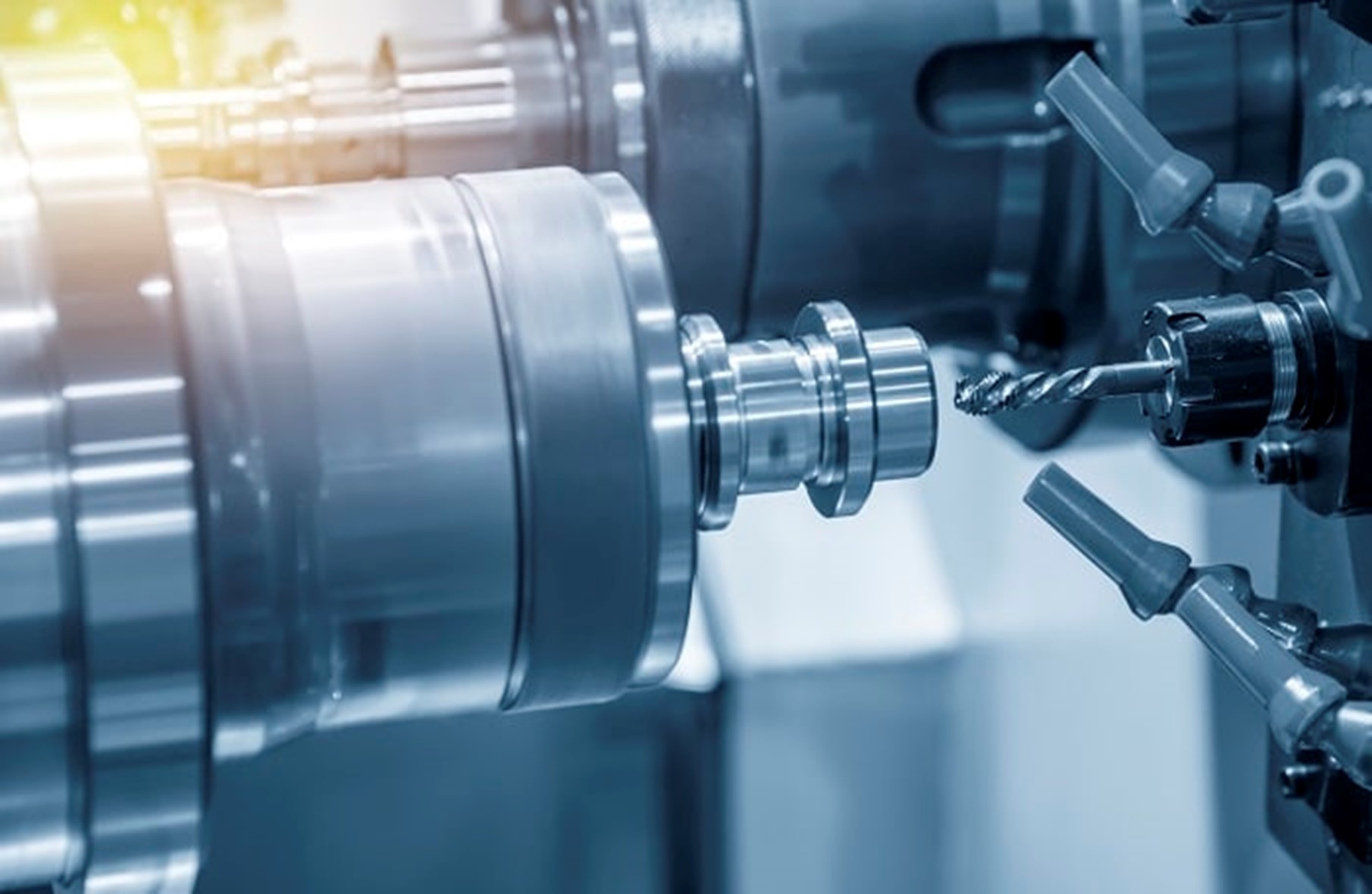
Follow these CNC machining design guide when designing your medical components.
Simplify Design
This involves modifying the part design to enable easy and more efficient machining. Simplifying the design for CNC machining medical devices will improve efficiency, reduce costs, and ensure high-precision manufacturing. This is often achieved by:
- Simplifying part geometry by removing unnecessary features
- Using standard features like chamfers, radii, and fillets
- Minimizing material usage
- Designing for tool access
Use Strong Colors
This can be a helpful way to improve the identification and traceability of parts, especially for those similar in shape or size. Strong colors also help distinguish between different versions of a part, such as for prototypes or functional testing.
When selecting colors for CNC machined medical parts, it is vital to consider the specific requirements of the component and its intended use. For example, some medical parts may require sterilization, and certain colors may not be able to withstand high temperatures or harsh chemicals. In addition, some colors may impact the biocompatibility of the part. Thus, it is important to ensure that the color does not negatively affect the part’s functionality or biocompatibility.
Have a Visual Appeal
A visually appealing design and strong colors can help differentiate a product in a crowded market. It creates a positive customer impression and makes the product easier to use or identify.
However, it is also vital to ensure that the design is functional and meets the specific requirements of the part and its intended use. When choosing colors, highlight the key features of the part, like buttons and ports. You should select colors and textures that enhance the physical appearance of the component.
Handy and Portable
It is crucial to optimize the design of medical parts for convenience and portability. This ensures easy transportation and use in different clinical settings. The optimization involves choosing lightweight materials like aluminum, choosing ergonomic designs, and designing easily detachable products. Doing this will ensure improved patient outcomes, provide versatility, and reduce costs.
Easy Maintenance
Designing CNC-machined medical components with easy maintenance in mind can help ensure that the parts continue to function properly and safely over time. A simple design that is easy to access can make maintenance tasks more efficient and effective.
Using durable and easily cleanable materials can reduce maintenance frequency and increase the part’s lifespan. Incorporating monitoring systems into CNC machining medical devices can help detect any issues early on, allowing for timely maintenance and repairs.
Examples of CNC Machined Medical Products
Due to its significance in the medical industry, designers and machinists have harnessed the potential of medical precision machining to create high-quality medical prototypes and products.
Here are some examples of CNC-machined medical parts:
Medical Implants
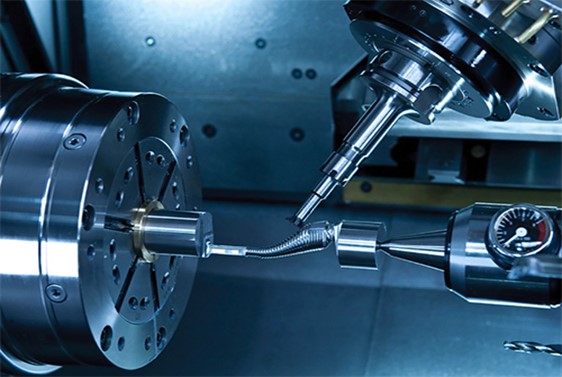
A vital application of CNC machining medical parts is the fabrication of bodily implants, including hip replacements, spine implants, and knee implants. The medical field typically requires implants in small quantities. Therefore, manufacturing processes like injection molding may be uneconomical due to the high costs of mold production.
However, medical CNC machining offers a cost-effective solution. This process utilizes reusable tools, thereby reducing production costs. CNC machining’s compatibility with various materials makes it an ideal process for manufacturing medical implants. These materials include titanium, stainless steel, cobalt-chrome alloys, and plastics like PEEK. CNC machining also ensures precision and accuracy, providing medical practitioners with custom implants.
Electronic Medical Equipment
Surgical tools typically have simple designs and are composed of only a few metal parts. In contrast, sophisticated medical equipment involves hundreds or even thousands of individual parts. These devices include MRI scanners, ultrasound equipment, CT scanners, X-ray machines, heart rate monitors, and some diagnostic equipment.
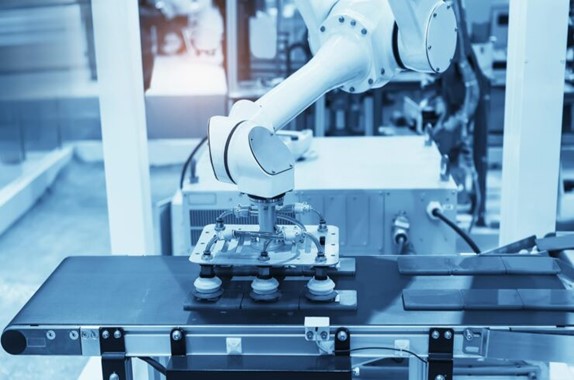
CNC machines are capable of producing intricate components for these advanced medical devices. CNC-machined parts for these devices may range from small buttons and switches to larger monitor housings. The quality and precision of these components are crucial to prevent equipment malfunctions. These machined medical equipment parts must also meet rigorous standards for safety and reliability. Thus, manufacturers can use a wider range of materials in their machining compared to surgical tools and implants.
Medical Surgical Instrument
CNC machining technology also helps in producing surgical instruments used in medical procedures. These components include biopsy tubes, surgical scissors, implant holders, blade handles, forceps, spacers, plate benders, saws, clamps, etc. To meet the strict safety and performance standards of the healthcare sector, it is crucial to create CNC-machined surgical instruments with precision and care. The design of devices must ensure easy sterilization and undergo thorough testing before using them in medical procedures.
CNC machining for the medical industry is also ideal for producing these surgical tools and instruments due to the high level of precision required. This manufacturing technique offers an economical and efficient method for manufacturing these parts. In addition to precision, it allows for comprehensive surface finishing treatments to ensure surgical instruments are free of surface defects. This further enhances the quality and reliability of these essential medical parts.
How to Choose a Manufacturer for Machined Medical Parts
Producing machined medical parts in today’s market requires high precision and adherence to strict safety and performance standards. Choosing the right manufacturer for these critical components is critical to ensure the quality and effectiveness of CNC machined medical equipment.
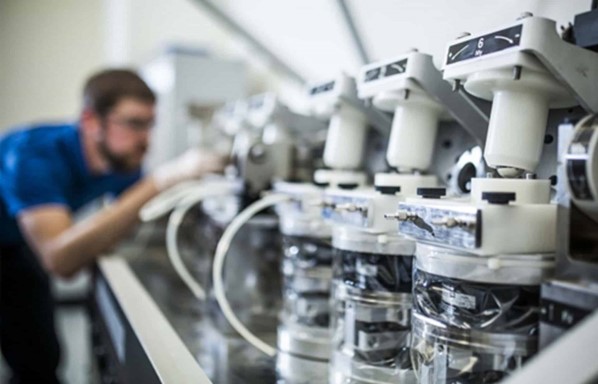
Here are three vital factors you should consider when choosing a manufacturing partner for your medical instrument machining:
ISO 13485 and 9001 Certified
ISO certification is an important consideration when looking for a dependable manufacturer of machined medical equipment. An ISO-certified management system validates that a company has met quality assurance and standardization standards. ISO 9001 is a widely recognized standard that defines management principles, and it is critical to consider whether a company using ISO 9001 meets the required criteria.
ISO 13485 certification is the quality management compliance standard for the medical device industry. Manufacturers who have received this certification can easily demonstrate that their management system meets international standards, making them a preferred choice for producing medical parts.
It is best to go with a company with ISO 13485 and 9001 certifications. This ensures the manufacturer meets the required quality and safety standards in management principles and medical device manufacturing. By considering these certifications, you can decide and choose a manufacturer who will deliver high-quality, compliant machined parts. RapidDirect, for example, is a manufacturer that meets these standards.
Experienced Experts
It is also important to consider the manufacturer’s experience and knowledge of the most recent advancements in medical device manufacturing. The best manufacturing partner will understand the medical industry’s unique requirements and safety regulations. They should also be able to provide the necessary documentation and quality control protocols to ensure compliance.
Working with a team with extensive experience and expertise in producing medical parts and components can provide valuable benefits. During the early stages of product development, such a team can identify potential risks and solutions. They can also provide valuable insights and guidance based on their experience and expertise to help you achieve your desired product outcomes.
This can ultimately save time and reduce costs during mass production. You can have confidence in the quality and safety of the machined parts if you choose a manufacturer with a proven track record in medical device manufacturing.
Strict Quality Inspection System
You should also understand the quality management systems and approaches a manufacturer uses to meet quality standards. It is critical to ask each potential partner what documentation they will provide to ensure the approval of your product for sale in today’s market.
ISO 13485 certification and other necessary approvals are critical, but ensuring that the manufacturer has a demonstrated track record of adhering to these strict standards is critical. While a new manufacturer may offer lower rates, there is a chance that they lack experience and that their services are not fully operational.
As a result, it’s critical to avoid becoming the operational test subject manufacturing space. By thoroughly vetting potential manufacturing partners, you can ensure that the manufacturer’s machined medical parts are of the highest quality and comply with all applicable regulations.
RapidDirect: Best Bet for Medical CNC Machining
Medical instrument machining involves detailed designing, careful selection of materials, and high precision. The medical field requires parts that meet strict tolerance and performance standards. Therefore, you must work with the right partner to get the best results for your project.
RapidDirect offers you the most efficient and robust CNC machining services for the medical industry to bring your medical products to market faster and cost-effectively. We are ISO 13485:2016 and ISO 9001:2015 certified, showing that all medical prototypes and parts we produce comply with adequate regulatory standards. Our extensive quality management system helps us manufacture parts to meet your unique demands.
We also boast experienced engineers and quality inspectors with extensive knowledge of the medical sector and its machining requirements. RapidDirect ensures the appropriate selection of materials to produce high-quality and safe medical products. You’ll also get a free design for manufacturing analysis report based on your design to help optimize your design and save costs. Submit your design file today and get instant quotes.
Conclusion
CNC machining is a valuable technique that can create superior-quality and precise products for various applications in the medical industry. You can meet the demands of medical applications with excellent material choices, design optimization, precision part manufacturing, and detailed inspection.
To achieve the best results, it is vital to work with a highly experienced and equipped medical machining shop. RapidDirect is always ready to support you throughout the manufacturing process. We will deliver high-quality parts that meet design specifications within a short time. Contact us today, and let’s get your project underway!
